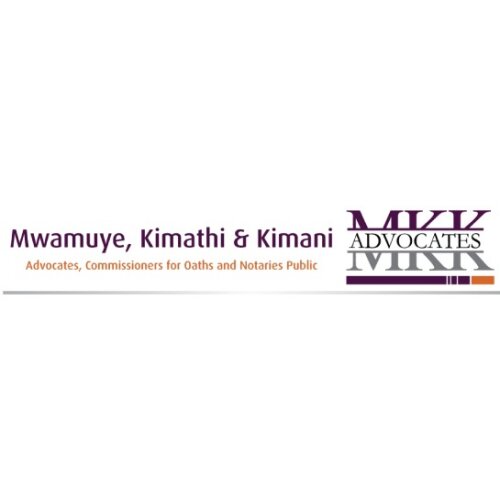Best Domestic Violence Lawyers in Kisumu
Share your needs with us, get contacted by law firms.
Free. Takes 2 min.
Free Guide to Hiring a Family Lawyer
List of the best lawyers in Kisumu, Kenya
Kenya Domestic Violence Legal Articles
Browse our 1 legal article about Domestic Violence in Kenya written by expert lawyers.
- Understanding Kenyan Family Law
- Family law is complex in Kenya and blends British common law with the traditional practices of different Kenyan communities (customary law) and Islamic law for Muslim Kenyans. This combination creates a unique legal landscape for each situation. Find a lawyer who understands these three influences to ensure your case is... Read more →
About Domestic Violence Law in Kisumu, Kenya
Domestic violence is a serious issue that affects many individuals and families in Kisumu, Kenya. It refers to the physical, sexual, emotional, or economic abuse that occurs within a domestic or intimate relationship. The laws in Kisumu recognize the gravity of domestic violence and provide legal remedies to protect victims and hold perpetrators accountable.
Why You May Need a Lawyer
There are several situations where you may require the assistance of a lawyer in domestic violence cases. Some common reasons include:
- Seeking a restraining or protection order against an abusive partner or family member.
- Navigating the legal process while reporting domestic violence incidents to the police.
- Seeking legal advice on divorce, child custody, or spousal support issues that arise from domestic violence situations.
- Understanding your rights as a victim of domestic violence and exploring options for seeking compensation.
- Obtaining assistance in filing a lawsuit against the perpetrator for damages caused by the violence.
Local Laws Overview
It is important to be aware of the key aspects of local laws in Kisumu that are particularly relevant to domestic violence:
- Protection Against Domestic Violence Act: This law outlines the legal framework protecting victims of domestic violence. It provides for a range of protective measures such as restraining orders, orders for eviction, and compensation for victims.
- Reporting Obligations: Health practitioners, police officers, and teachers have a legal obligation to report incidents of domestic violence if they become aware of them.
- Child Protection Laws: It is crucial to understand the laws regarding child custody, maintenance, and visitation rights in domestic violence cases involving children.
Frequently Asked Questions
Q: How can I get a restraining or protection order?
A: To obtain a restraining or protection order, you can seek assistance from your lawyer, visit the local magistrate's court, or contact relevant organizations such as the police or a domestic violence hotline. They will guide you through the necessary steps.
Q: Can I report domestic violence anonymously?
A: Yes, you can report domestic violence anonymously. However, providing your identity might strengthen the case and help the authorities take prompt action.
Q: What rights do I have as a victim of domestic violence?
A: As a victim of domestic violence, you have the right to be protected from further harm, access medical care, obtain a protection order, seek legal representation, and pursue compensation for damages incurred.
Q: Can I seek assistance if I am not a Kenyan citizen?
A: Yes, domestic violence laws in Kisumu protect both Kenyan citizens and non-citizens. Everyone has the right to safety and legal remedies, regardless of their nationality.
Q: How can I find support groups or counseling services for domestic violence survivors?
A: Various organizations in Kisumu offer support groups and counseling services for domestic violence survivors. You can contact local NGOs, community centers, or the Ministry of Gender, Social, and Community Development for recommendations.
Additional Resources
Below are some resources that can provide further assistance and information:
- Ministry of Gender, Social, and Community Development: +254-XX-XXXXXXX
- Kisumu Police Department: +254-YY-YYYYYYY
- Kisumu Gender-Based Violence Hotline: 0800-YYYYYY
- Organization X: Address, contact details
- Organization Y: Address, contact details
Next Steps
If you require legal assistance in a domestic violence case, here are some recommended steps:
- Document any evidence of the abuse, such as photographs, medical reports, or witness statements.
- Reach out to a lawyer specializing in domestic violence cases to discuss your situation and obtain advice.
- If necessary, file a police report and request a restraining or protection order at the local magistrate's court.
- Explore available community resources and support groups to access counseling, medical assistance, and additional help during this challenging time.
- Ensure you are aware of your rights and legal options throughout the process, seeking guidance from your lawyer as needed.
Lawzana helps you find the best lawyers and law firms in Kisumu through a curated and pre-screened list of qualified legal professionals. Our platform offers rankings and detailed profiles of attorneys and law firms, allowing you to compare based on practice areas, including Domestic Violence, experience, and client feedback.
Each profile includes a description of the firm's areas of practice, client reviews, team members and partners, year of establishment, spoken languages, office locations, contact information, social media presence, and any published articles or resources. Most firms on our platform speak English and are experienced in both local and international legal matters.
Get a quote from top-rated law firms in Kisumu, Kenya — quickly, securely, and without unnecessary hassle.
Disclaimer:
The information provided on this page is for general informational purposes only and does not constitute legal advice. While we strive to ensure the accuracy and relevance of the content, legal information may change over time, and interpretations of the law can vary. You should always consult with a qualified legal professional for advice specific to your situation.
We disclaim all liability for actions taken or not taken based on the content of this page. If you believe any information is incorrect or outdated, please contact us, and we will review and update it where appropriate.










